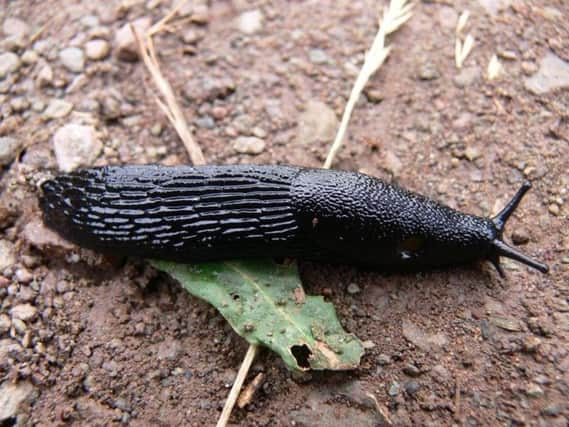Yorkshire Water urges considered pesticide use to beat farm slugs


Yorkshire Water said it was issuing the advice to farmers on land near the rivers Derwent, Wiske and Ouse because pesticide pellets can occasionally leak into watercourses in Yorkshire’s farming heartlands around the rural outskirts of York, Northallerton, east of Pocklington and Driffield.
An active ingredient in the pellets - metaldehyde - poses no danger to health or the environment, but its levels in the three named rivers have occasionally breached European Union drinking water standards in the last year.
Advertisement
Hide AdAdvertisement
Hide AdTo avoid any repeats, Yorkshire Water is working with the National Farmers’ Union (NFU), among others, to encourage farmers to adopt a pest management approach which relies less on slug pellets.
Andrew Walker, Yorkshire Water’s catchment strategy manager, said: “We really appreciate the efforts farmers in Yorkshire are making to reduce the amount of metaldehyde getting into our rivers. These measures include switching to ferric based pellets; adhering to the new 10-metre buffer strips and implementing the new integrated pest management plans, and other cultivation techniques which can control slug populations without the need for chemicals.”
The integrated pest management method sees seeds sown deeper into the soil, rolling after seed drilling to make it harder for slugs to move about, use of traps to assess slug numbers and using ferric phosaphate as a more environmentally friendly alternative to metaldehyde.
Pellets are commonly used at this time of the year to control slugs, with one industry group estimating they are used on around a fifth of all land that is used to grow wheat.
Advertisement
Hide AdAdvertisement
Hide AdGuy Smith, the NFU’s vice-president, said metaldehyde was an important management option for farmers but he encouraged the use of “a wide array of techniques” to control slugs.
UK trials suggest that 98.7 per cent of metaldehyde contamination within rivers and streams comes from flowing field drains.